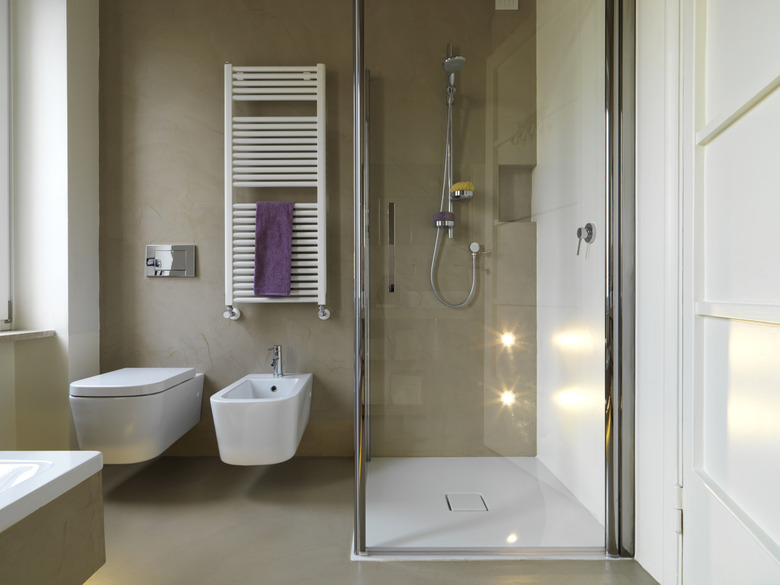The Best Materials For A Shower Base
We may receive a commission on purchases made from links.
Your shower base is one of the most important components to consider when you're choosing your shower. It's not only the part that supports your weight while you shower, but it also keeps you from slipping when you're wet and helps to properly drain water and cleaning products.
Different shower base materials have different properties and various pros and cons. Knowing the best materials for a shower base can help you to make a more informed choice that best suits your personal needs.
Acrylic Shower Bases
Acrylic Shower Bases
Acrylic shower bases are a popular choice. Acrylic is an extremely durable material that holds up well under pressure from weight and running water. It's completely water-resistant and is not prone to corrosion from mineral deposits.
Acrylic is also difficult to scratch and scuff, and it will look like new for a long time after installation. It's very easy to clean and maintain as well. Acrylic shower bases are priced in the midrange, but when you factor in their long life span, they're pretty cost-effective.
The main downside to an acrylic shower base is the look and feel. Many homeowners think acrylic looks somewhat cheap and less luxurious than other shower base options. It can also have a less robust feel than something like stone or tile.
Fiberglass Shower Bases
Fiberglass Shower Bases
Fiberglass shower bases are another common choice. Fiberglass has some properties that are similar to acrylic, but it tends to be more affordable. Fiberglass shower bases are available in a wide variety of shapes, making them great for oddly shaped bathrooms. Many other shower extras, such as seating, are made from fiberglass too.
Fiberglass is durable but not quite to the level of acrylic, and it usually cracks or breaks sooner than acrylic does. Scratches and scuffs are also more noticeable in a fiberglass shower base, as its coloring is only a topcoat. It also does not stand up as well to harsh bathroom cleaning products and intense heat.
Tiled Shower Bases
Tiled Shower Bases
Tiles offer a beautiful finish to your shower base. They're also extremely durable and long-lasting. With tiles, you can really customize the look of your shower and get a look and feel that's perfect for you.
The major downside to tiled shower bases is the price. The base and tiles have to be purchased separately, and you may need to hire a professional for installation. Tiled shower bases also require a fair bit of maintenance and need re-grouting regularly to ensure that they stay watertight.
Solid Shower Bases
Solid Shower Bases
You can also opt for solid shower bases in a range of materials, including marble, cultured marble, concrete and various types of metal, like cast iron or copper. These options tend to be extremely durable and luxurious in their look and feel.
The obvious downside to any of these types of shower bases is the cost. Solid shower bases usually have to be custom made for your bathroom and come with a hefty price tag. Many also require a substantial amount of maintenance.
